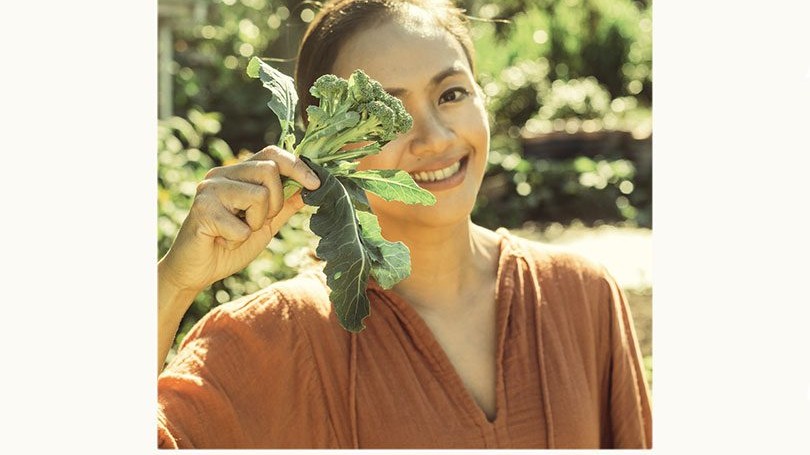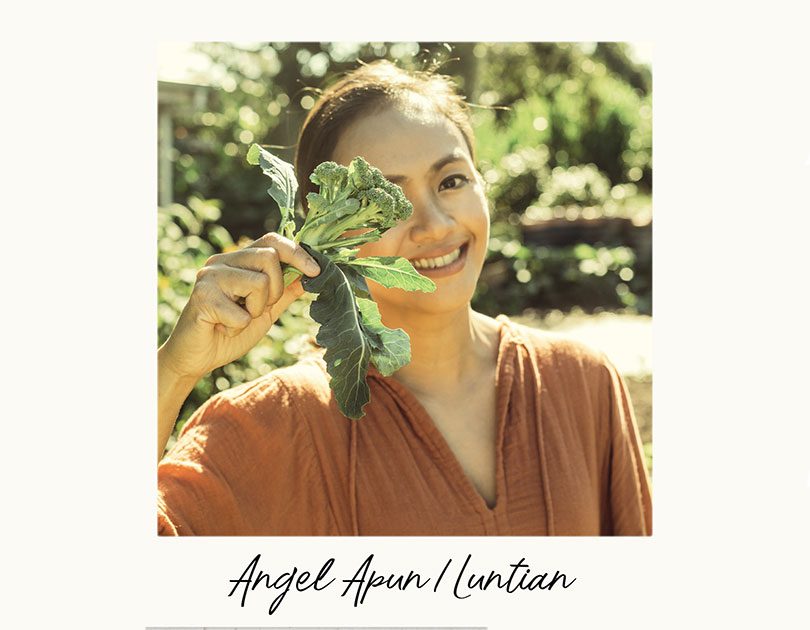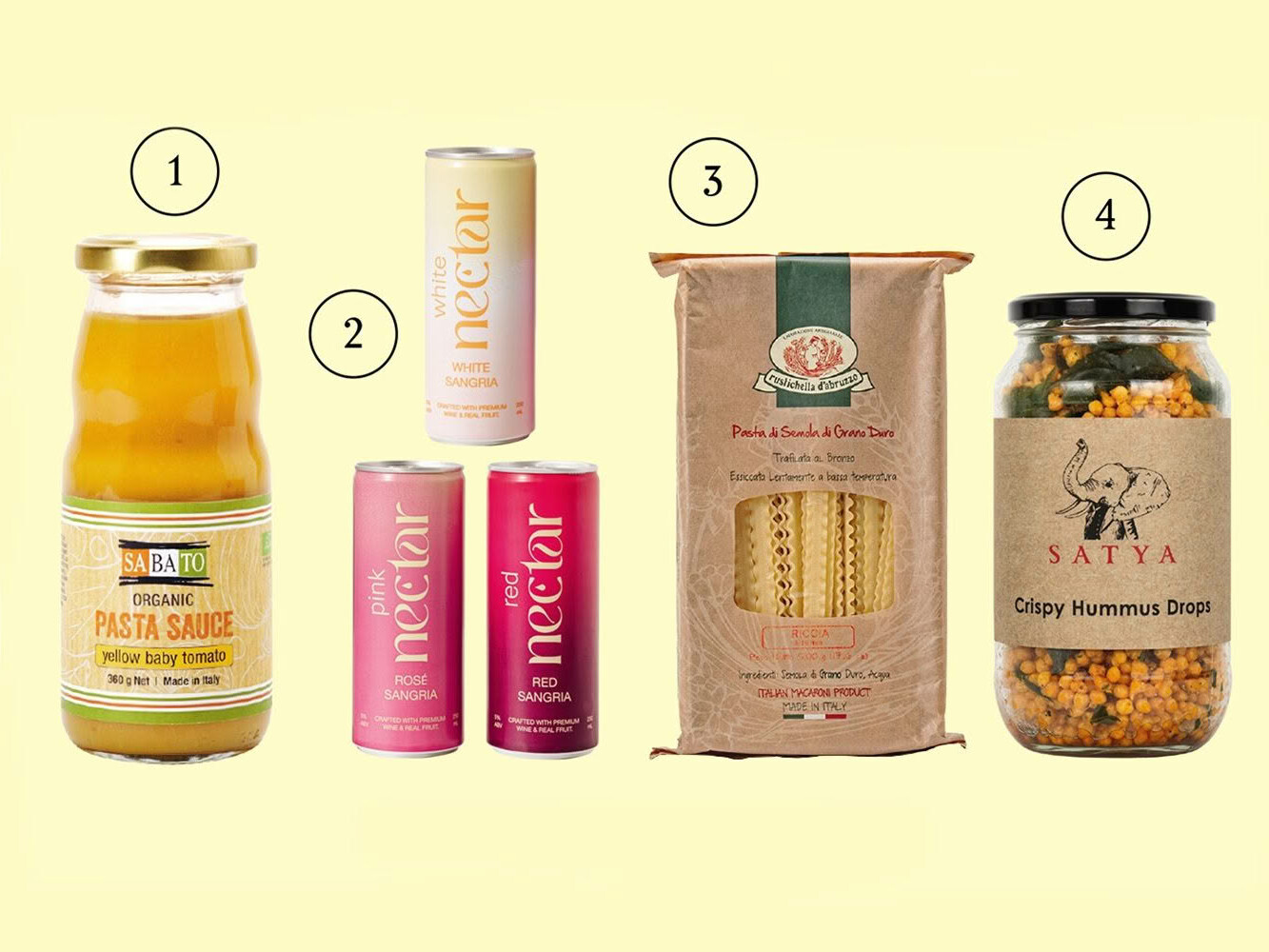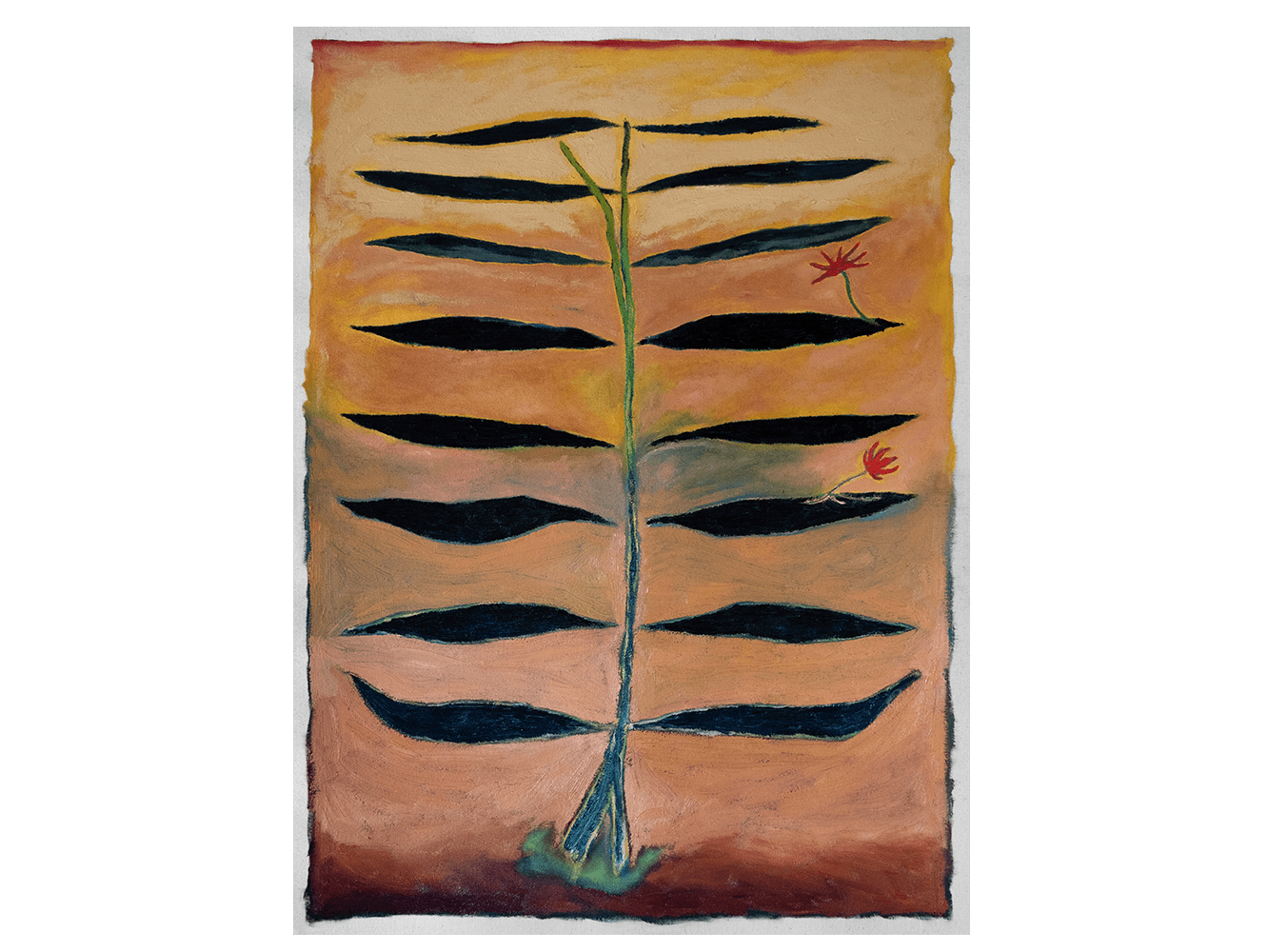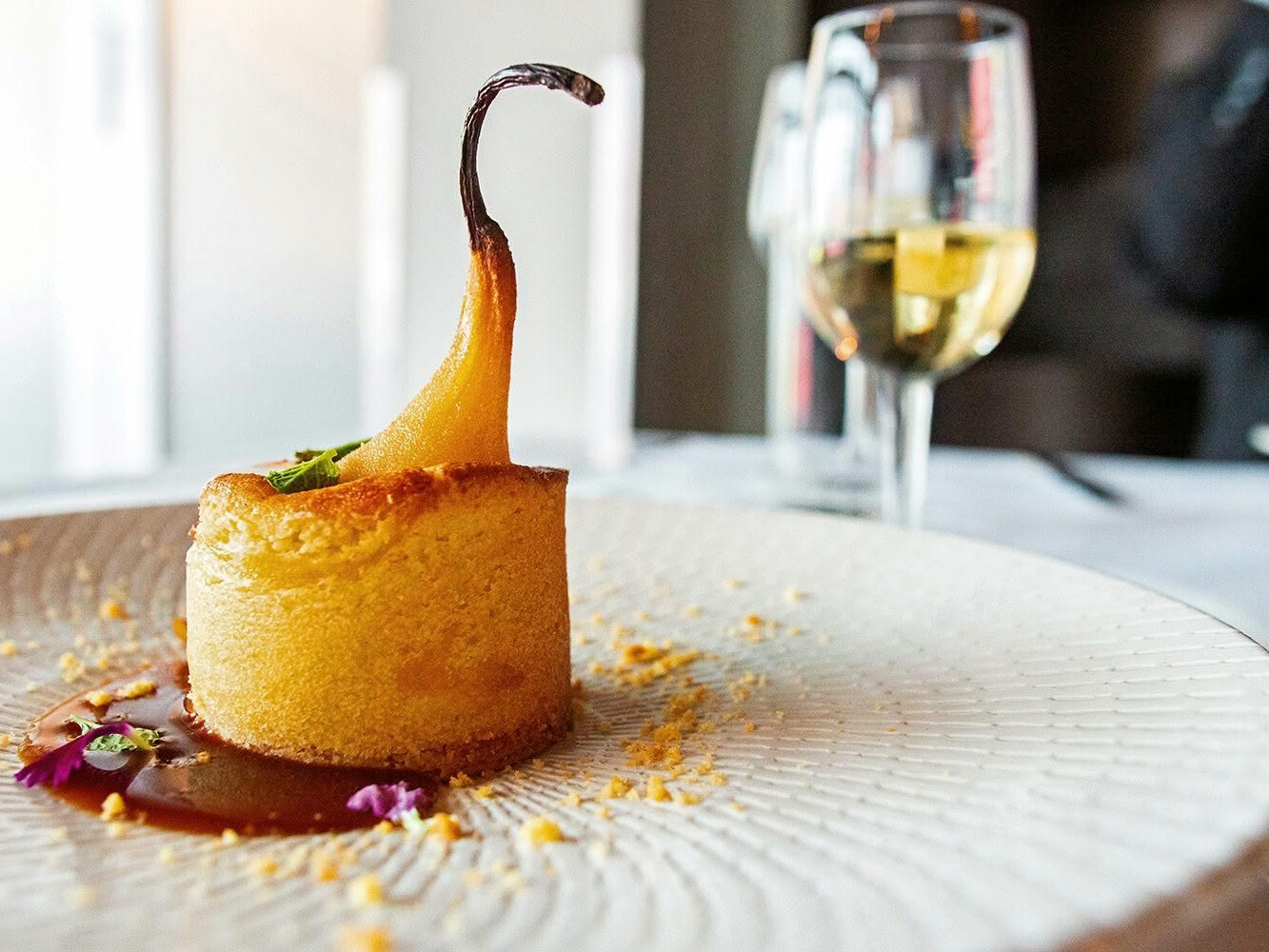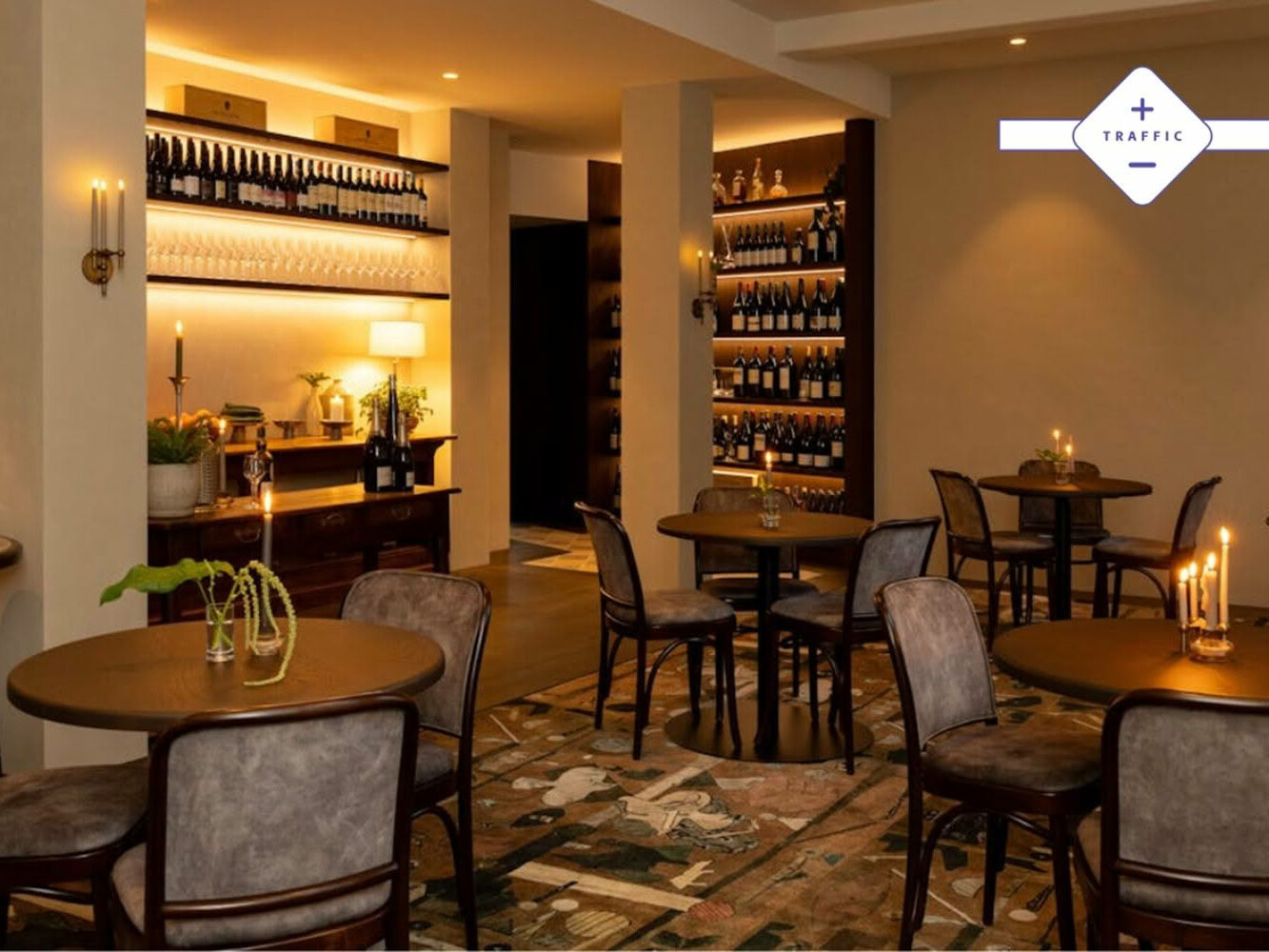It would be fanciful to say that Angel Apun’s business is built on the back of two rescue rabbits, but unravel the strands and it’s all there. The way Angel tells it, it was caring for two adopted bunnies, Fluffy and Pepper, that awakened her empathy for animals and was the impetus for her to become vegan five years ago. It was quite a turnabout for a self-confessed adventurous eater, who previously had no qualms about eating offal, grubs, camel meat and snake blood, among other ‘delicacies’.
But it was hard to find plant-based versions of the Filipino and South-east Asian food she loved. Determined not to miss out on her favourites she began to experiment, and in 2020 she started her business Luntian (which means ‘green’ in Filipino) to share plant-based versions of traditional Filipino food – dishes that are usually heavily dependent on pork, chicken and seafood.
“My favourite Filipino dish is kare-kare, which is a peanut-based and annatto- flavoured stew of oxtail, tripe and local veges,” says Angel. “The kicker of this dish is the bagoong, which is the Filipino version of fermented shrimp paste. Kare- kare isn’t complete without it, as it is the umami factor that binds everything together. I veganised this by making my own fermented shrimp paste (without the shrimp), but using local ingredients instead that we can easily find and source here in New Zealand. I also use a lot of textures from vegetables and fungi to replicate the sensory experience of eating kare-kare. This vegan kare-kare is one of the bestselling dishes on my menu, and even non-Filipinos who try it rave about it.” In fact, 80% of Angel’s followers are not vegan, but people who recognise that how we eat is impacting on the environment and who want to support sustainable eating without compromising on taste.
Angel’s wildly popular Saturday market stall at The Shed Collective in Oratia garners rave reviews, and to try her trademark vegan KFC (‘kunyare fried chicken’, based on fermented seitan) you’ll need to get there early and wait in line. A true labour of love, it takes many meticulous steps over seven days to bring a small amount to market, so once it’s gone, it’s gone – until next week.
Getting it right is a complex blend of cooking and science, and its success digs deep into many aspects of Angel’s experience: a street-food vendor at the age of 12, she has no formal culinary training but learned to cook by helping her dad. An unfinished science degree comes into the mix, as does a former career in sales and marketing. “I always say that possibilities in plant-based cooking are limitless, as long as we don’t limit our imaginations. I like playing with textures a lot and I understand cooking at a molecular level, so I use easy-to-find local ingredients such as kūmara and then turn them into meat-like textures that become the main protein of my veganised dishes.” So kūmara becomes the ‘pork’ in a Filipino-style crispy sweet and sour pork, and Angel’s handmade beef analogue (made from wheat) is the protein base in a vegan beef rendang that has people lining up for seconds.
While ‘made it because I wanted it’ might have been the spark that launched Luntian, it was grounded in some shrewd business thinking. Filipino cuisine is the rising star of the foodie world, rooted as it is in flavours from Spanish, Latino, Chinese, Indian, Malaysian, Pacific and American cultures. Hitch this to the increasing popularity of plant-based diets, or those who are vegan- curious, and you’re cresting a wave.
Though Luntian is just two years old, news of Angel’s enterprise has spread well beyond the market, and she was named New Zealand’s Filipino-Kiwi Chef of the Year for 2021 in the Filipino-Kiwi Hero Awards. Initiated by Filipino News, the awards are presented to Filipinos in recognition of their achievements in New Zealand, and include Masterchef NZ finalist Leo Fernandez as a past winner.
Reflecting both the vegan and Filipino migrant communities is a lot of responsibility, and Angel admits she does sometimes wish she was just running a food truck and serving her food. But she says, “What I hope I can do is pave the way for the next generation of humans who may be thinking of doing things differently within their own culture and experience. All I have done is pay homage to my culture but with a greener flavour.” luntian-nz.com
SEE MORE FROM CUISINE
Design File / Jessica Crowe / stylist, painter / Whangamatā
Though you may not know Jessica Crowe’s name, if you are a regular…
Traffic July / August 2025
Josh and Helen Emett continue the elegance and success of Gilt, with…

